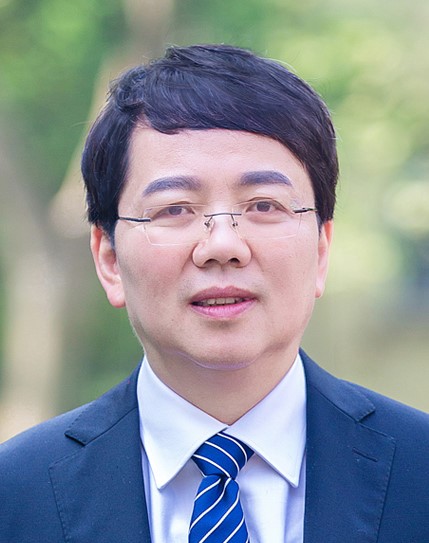|
IEEE
ICMA 2022 Conference
Plenary Talk 1
Future of Robotics: The Tri-Co
(Coexisting-Cooperative-Cognitive) Robots
Han Ding,
Ph.D.
Professor
Academician of the Chinese Academy of Sciences
School of Mechanical Engineering
Huazhong University of Science and Technology, China
dinghan@hust.edu.cn
http://english.mse.hust.edu.cn

Abstract:
Tri-Co Robots (Coexisting-Cooperative-Cognitive Robots) are those that can
naturally interact and collaborate with the environment, including humans as
well as other robots, and adapt to new situations. Coexistence will allow robots
to ubiquitously and safely work alongside humans, considerably increasing our
efficiency and quality of life. Cooperation will enable robots to collaborate
and coordinate effectively with other agents through communication and
interplay. Cognition will provide robots the resources to gather information,
perceive and predict behaviors, and respond accordingly. This will all be
achieved through state-of-the-art machine learning, control and planning
algorithms. Key characteristics of Tri-Co Robots are plastic and dexterity,
multi-modal perception, and working autonomously and collaboratively. In
particular, the development of rigid-flexible-soft robots and efficient solution
methods are essential to achieve adaptation to environmental uncertainty and
compliant interactions with humans and other robots. This talk will introduce
the current research activities of robotics in China, especially the Tri-Robot
Research Plan of NSFC (National Natural Science Foundation of China). It will
discuss the primary scientific challenges and key scientific problems of the
plan, mainly focusing on mechanism, perception and control. The talk will also
forecast China’s expected breakthroughs and goals in Tri-Co robot research.
Finally, the talk will present recent research results of our group and discuss
current and future challenges.
Prof. Han
Ding received his Ph.D. degree in received his Ph.D. degree in Mechatronics from
Huazhong University of Science & Technology in 1989. Supported by the Alexander
von Humboldt Foundation, he worked at University of Stuttgart, Germany in 1993.
He obtained the National Distinguished Youth Scientific Fund in 1997 and was
awarded the “Cheung Kong” Chair Professor at Shanghai Jiao Tong University in
2001. He was elected a member of Chinese Academy of Sciences in 2013.
Prof. Ding has long dedicated himself to research in the field of robotics
and digital manufacturing, and has successfully combined both technologies. He
published three academic books and more than 300 journal papers, and licensed
more than 100 patents in China.
Prof. Ding is currently the chairman of Academic Committee of HUST and the
director of the National Innovation Institute of Digital Design and
Manufacturing. He is also a scientific committee member of the NSFC Tri-Co Robot
major research program.
|